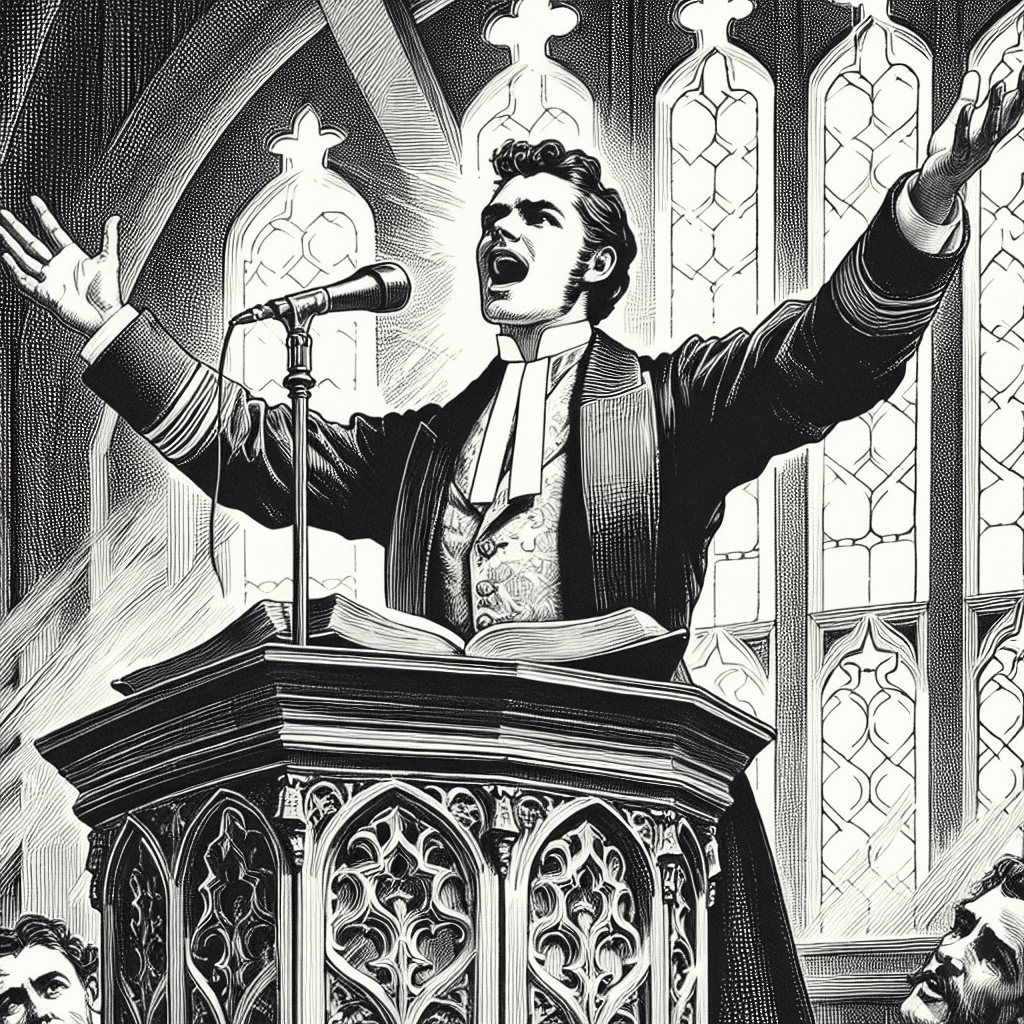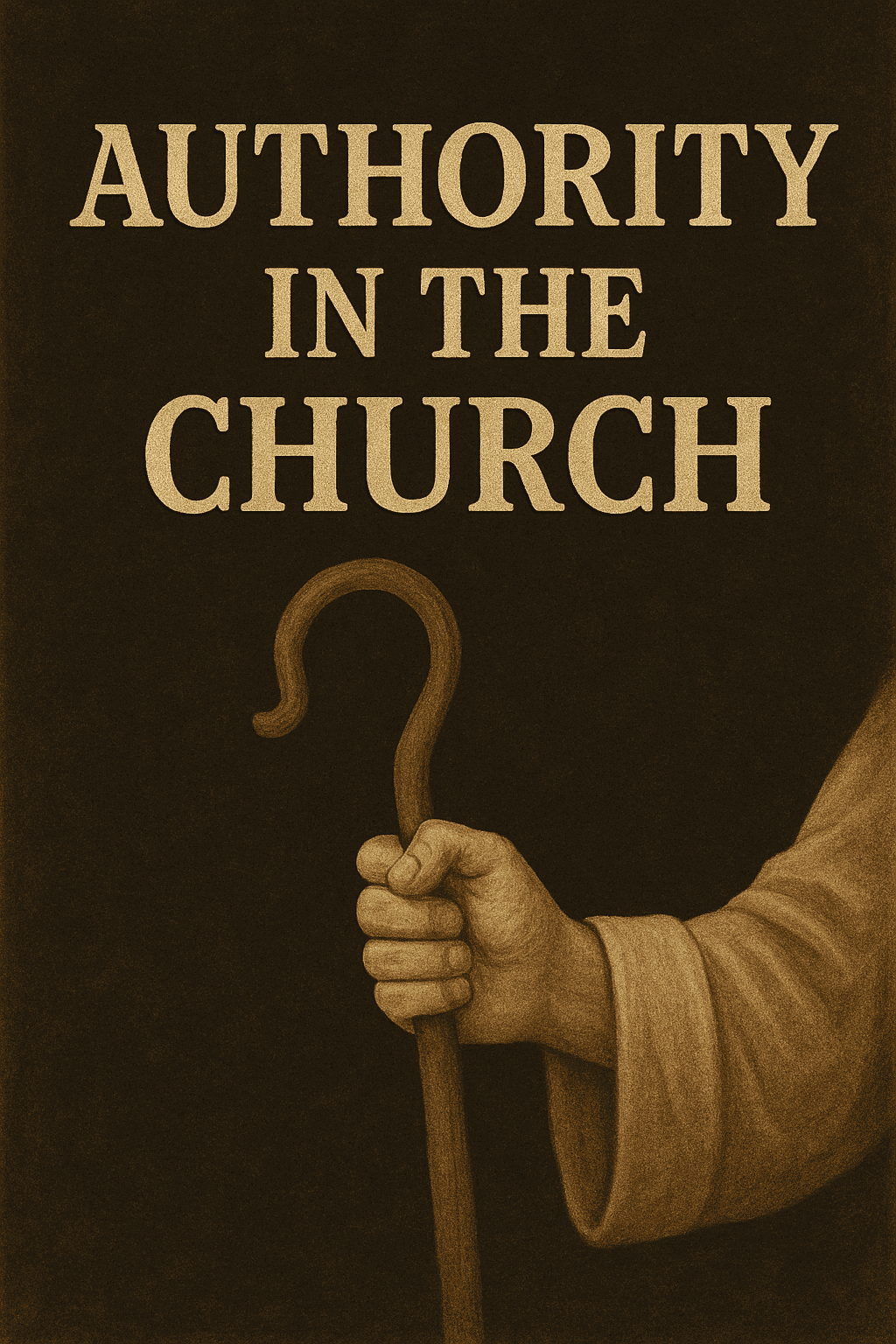Authority in the Church: A Burden or a Blessing?
Authority. Just reading that word probably stirs up some emotions.
For many, it’s a word tied to control, abuse, and manipulation. We’ve seen church leaders fall from grace, institutions protect power over truth, and people wounded by those who were supposed to shepherd them. It’s no wonder that in today’s culture, the word authority carries a heavy weight.

But what if we’ve misunderstood it? What if authority in the church isn’t about dominance, but about service? What if, instead of being a burden, authority—when rightly understood—was actually a blessing?
Let’s unpack that together.
Who Has the Authority?
The first thing we have to settle is this: the church is not a human institution—it belongs to Christ.
Jesus made that clear when He told Peter:
“I will build my church, and the gates of hell shall not prevail against it.” (Matthew 16:18, emphasis added)
The church doesn’t belong to pastors, elders, deacons, or denominational boards. It belongs to Christ, and He is the final authority.
Paul affirms this in Ephesians 1:22:
“And he put all things under his feet and gave him as head over all things to the church.”
Christ is the head of the church, and any human authority inside the church is delegated—not ultimate.
That means no pastor, elder, or church leader has absolute authority. Their role is to shepherd, not to rule. Their authority is derived, and they will give an account to the One who entrusted it to them (Hebrews 13:17).
That also means church members are under Christ’s authority as well. We don’t get to pick and choose what commands we obey. If Jesus is Lord, then He has the final say in how the church operates—not us.
The Purpose of Authority in the Church
If authority in the church is so often abused, why does God give it in the first place?
Because without authority, there is no order—only chaos.

Imagine a flock of sheep with no shepherd. They wander aimlessly, falling into ditches, getting attacked by wolves, and starving because they don’t know where to find food.
That’s what a church without authority looks like.
God established pastors and elders not to control people, but to care for them.
Paul writes in Acts 20:28:
“Pay careful attention to yourselves and to all the flock, in which the Holy Spirit has made you overseers, to care for the church of God, which he obtained with his own blood.”
The role of a church leader is not to be served, but to serve—just like Christ (Matthew 20:28).
And the role of the congregation? To be led well.
Hebrews 13:17 puts it this way:
“Obey your leaders and submit to them, for they are keeping watch over your souls, as those who will have to give an account.”
Does that mean blind obedience? Absolutely not. But it does mean that a biblical church thrives when leaders lead well, and members follow well.
The Difference Between Godly and Abusive Authority
We all know authority in the church can be abused. Jesus confronted that reality when He rebuked the religious leaders of His day:
“They tie up heavy burdens, hard to bear, and lay them on people’s shoulders, but they themselves are not willing to move them with their finger.” (Matthew 23:4)
But just because some misuse authority doesn’t mean authority itself is bad.
A godly pastor leads by example, not by coercion (1 Peter 5:2-3).
A godly elder feeds the sheep, rather than using them for personal gain (John 21:15-17).
A godly church member follows biblical teaching, not blindly but thoughtfully, testing everything against Scripture (Acts 17:11).

The difference between good and bad authority?
One serves. The other controls.
One builds up. The other tears down.
One points to Christ. The other points to itself.
So how do we recognize godly authority? By holding it to the standard of Scripture.
How Should We Respond to Authority in the Church?
Let’s be honest—authority is uncomfortable. We like to be in control of our own lives.
But Scripture doesn’t give us the option to reject biblical authority just because we don’t like it. Instead, it calls us to embrace godly leadership while rejecting anything that contradicts God’s Word.
Here’s what that looks like in practice:
- For church leaders: Shepherd the flock with humility, not seeking power, but pointing people to Christ (1 Peter 5:2-3).
- For church members: Follow your leaders when they are faithful to Scripture, and hold them accountable when they are not (Hebrews 13:17, Acts 17:11).
- For everyone: Recognize that ultimate authority belongs to Christ, and He will hold every person accountable for how they steward it (Romans 14:12).
If authority in the church has been a wound in your life, know this: Christ sees, Christ knows, and Christ will judge righteously. No abuse of power will go unpunished. And no faithful service will go unrewarded.
The question is, will we submit to His authority—not just in the church, but in every area of our lives?
Because at the end of the day, authority isn’t about control.
It’s about trusting the One who holds all authority in His hands.
Final Thought
The world tells us authority is a bad word. That it’s oppressive, restrictive, and meant to be resisted.
But in God’s design, authority in the church is a gift—not because people wield it perfectly, but because Christ does.
And if we can trust Him with our salvation, we can trust Him with His church.
Blessings in Christ Jesus,
Wally
P.S. Got thoughts or questions? I’d love to hear them. Reach out anytime.
Would you like to know what the Bible teaches about election and predestination? Check out my free pamphlet Chosen by Grace.
Walt Roderick is a Christian writer who cares more about biblical clarity than online applause. He writes to strengthen believers and confront spiritual drift.






